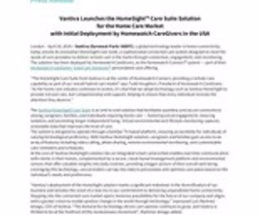Consumers are demanding more antibiotic-free meat. At McDonald's, so is a group of nuns.
The world's largest burger chain and its fast-food brethren have made commitments to remove antibiotics from chicken, but plans to curb the use of antibiotics in beef and pork have been far less common. It's a far more complex and expensive proposition, and fast-food chains are largely taking a wait-and-see approach before changing the way their burgers and bacon are made.
KFC, a holdout in the wave of major fast-food restaurants vowing to curb the routine use of antibiotics in chicken, jumped on board earlier this month in response to pressure from animal and environmental groups. A number of major restaurant chains and producers have made promises, of varying degrees, to only use antibiotics on chicken when they're sick, a step back from widespread usage of the drugs.
But promises to curb the use of antibiotics in cows and pigs have been far less common. A renewed push by a group of socially conscious nuns asking McDonald's to announce a plan for antibiotic-free pork and beef highlights the hurdles that the industry will have to jump over to meet consumers' growing appetite for "clean" meat.
In a regulatory filing last week, McDonald's revealed that the Benedictine Sisters of Boerne, Texas, intend to submit a proposal at the company's annual meeting in May, asking it to set goals and timelines to phase out the routine use of antibiotics in pork and beef. The sisters have pushed McDonald's for similar promises in recent years. Antibiotics are often given to healthy animals in industrial or so-called factory farms to prevent disease in close quarters.
Antibiotic resistance is a growing problem across the world. More than 70 percent of antibiotics important to human medicine in the U.S. are sold for livestock use, according to the Food and Drug Administration. And the Centers for Disease Control and Prevention and the World Health Organization have said the overuse of antibiotics has led to a global health crisis because the more people are exposed to them, the less effective they are. Every year in the U.S., at least 2 million people become infected and 23,000 people die after becoming infected with drug-resistant bacteria, according to the CDC.
Menus at McDonald's, Panera and Chipotle have comparable nutritional values Graphic by Jessica ThompsonIs McDonald's healthier than Chipotle or Panera Bread? Most menu combinations, as exampled in this graphic, are comparable nutritionally. Sometimes McD's is even healthier than the other two fast-food giants. (Green indicates the lowest value for each category.)
Is McDonald's healthier than Chipotle or Panera Bread? Most menu combinations, as exampled in this graphic, are comparable nutritionally. Sometimes McD's is even healthier than the other two fast-food giants. (Green indicates the lowest value for each category.)
(Graphic by Jessica Thompson)McDonald's recommends shareholders vote against the proposal. The world's largest burger chain said it's too early to set timelines for committing to a rollout of antibiotic-free pork and beef because it doesn't purchase the entire cow or pig as it does with chicken, which the company says limits its "ability to directly influence change."
Second, McDonald's said complex sourcing makes it more difficult to trace the animal's exposure. Animals may move from farm to farm during their lives, McDonald's said, and "there is currently a lack of traceability" in some cases between those farms in the U.S. and other countries from which McDonald's sources beef and pork.
The supply chain for beef and pork gets complicated quickly. McDonald's buys beef from thousands of ranches, each with an average of just 50 cows. That contrasts with just two main U.S. suppliers for chicken. McDonald's said that with chicken, it "has a clear line of sight from farm to table."
Here's the problem with sustainable beef (and pork) Samantha BomkampWhere's the beef?
If it's sustainable beef you're looking for, the answer is complex. And expensive.
In response to consumer demand, restaurants, grocers and other food service companies have shifted toward chickens and turkeys that are raised sustainably — "naturally," more humanely, with less...
Where's the beef?
If it's sustainable beef you're looking for, the answer is complex. And expensive.
In response to consumer demand, restaurants, grocers and other food service companies have shifted toward chickens and turkeys that are raised sustainably — "naturally," more humanely, with less...
(Samantha Bomkamp)McDonald's said it could also see meat shortages if it moves too quickly to antibiotic-free pork and beef. While chicken are slaughtered in just weeks, cattle can be 2 years old when they go to market, leaving far more time in which an animal can get sick. That raises the likelihood that a farmer would need to use antibiotics, even if they weren't using them routinely in the animal's feed as is commonplace in many industrial farms.
"We need to ensure that any change is purposeful, acceptable to customer preferences, and is designed for a continuous supply of products for McDonald's restaurants," the company said in its response to the shareholder proposal. "The company continues to work with farmers, producers and other purchasers of food animals to influence meaningful change across the agricultural sector."
McDonald's is the biggest purchaser of beef in the United States and a major buyer of pork, used in menu items like breakfast sausage and the McRib, so the move to lessen the use of antibiotics in the meat it buys could have ripple effects across the industry. When McDonald's announced last year it would move to all cage-free eggs within 10 years, more than 100 companies followed suit.
A McDonald's spokeswoman declined to comment further. McDonald's, which will release its first-quarter earnings next week, is in its pre-earnings quiet period, which means the company is limited in what it can say to analysts, investors and the media.
The process of stripping out antibiotics from the supply chain is a slow one, to be sure: McDonald's began focusing on antibiotic use in food animals in 2003. In 2015, it released a Global Vision for Antibiotics. That year, it first made a commitment to clean up its poultry supply. Last year, it stopped using antibiotics important to human medicine in chicken served at U.S. restaurants, nine months ahead of its original 2017 deadline.
Some fast-food rivals have moved far faster to strip out antibiotics, but many more have only recently made commitments, like Starbucks and Burger King. Still, those promises are only for chicken.
"There's been a lot of progress in the poultry industry in a relatively short amount of time," said Jonathan Kaplan, director of the Natural Resources Defense Council's Food and Agriculture Program. "In the pork and beef sectors ... the atmosphere is still not super enthusiastic."
An earlier version of this story misstated the name of the organization where Jonathan Kaplan works.
sbomkamp@chicagotribune.com
Twitter @SamWillTravel
Our editors found this article on this site using Google and regenerated it for our readers.













